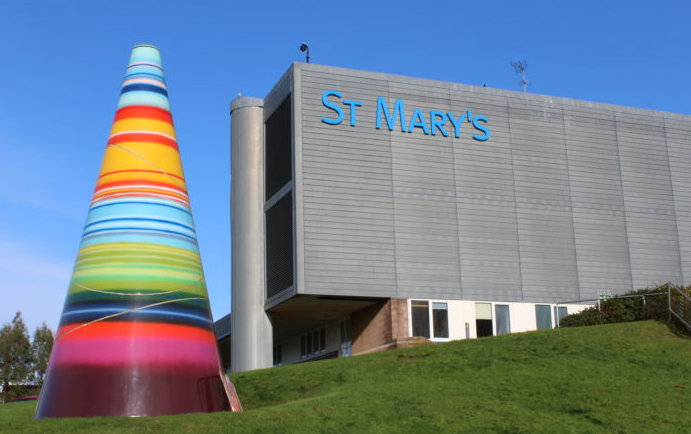
The Isle of Wight NHS Trust is asking Islanders to only contact 999 in an emergency, after staff recently took calls about sunburn, insect bites and domestic flooding.
The Isle of Wight Ambulance Service received 528 emergency 999 calls last week – 24.5 per cent higher than in the same week in 2019 before the pandemic.
Call handlers reported taking some 999 calls for non-emergency issues such as sunburn, insect bites and domestic flooding.
St. Mary’s Hospital is encouraging the public, where appropriate, to use NHS 111 online for medical advice.
The NHS 111 online service offers people quick advice on the best option for them to get the care they need, including getting a call back from a trained clinician, booking them an arrival time at A&E or providing advice on how to help them recover. The request comes as demand for emergency medical support continues to rise.
People are also being reminded to use NHS 111 first before turning up at the A&E department. NHS 111 can ensure people are directed to the right location for their care.
Victoria White, Head of Ambulance said:
“Our frontline ambulance crews, 999 and 111 call handlers and the many other teams who ensure we can respond to patients as quickly as possible are working extremely hard as we see continued increase demand for our services.
“We are prioritising those patients that are most sick and severely injured and everyone who needs an ambulance will get one, however there are other and often better options for people to get the care they need.
“As has been the case throughout the pandemic, the public can play their part by using 111 online for urgent advice, calling 999 in life threatening cases and calling back only if their condition worsens.”
The public is still being encouraged to contact 999 if they experience:
- signs of a heart attack like a pain like a heavy weight in the centre of your chest
- signs of stroke such as your face dropping on one side
- difficulty breathing
- heavy bleeding that won’t stop
- seizures or
- sudden and rapid swelling of the eyes, lips, throat or tongue.
A number of factors are thought to be contributing to the rise in demand for emergency care including the recent warmer weather, an increase in Covid-19 transmission rates in the community and an increase in the public spending time outside as restrictions ease.
Joe Smyth, Chief Operating Officer said:
“The pressures we are witnessing on our Ambulance Service impact the Emergency Department here at St. Mary’s Hospital. We are pleased to be able to provide the 111 service to our Island community, including the online support. It allows us to direct people to the most appropriate care setting for their treatment.
"You should continue to use 999 if you have a serious or life-threatening condition or accident. However, when you think you need A&E, use NHS 111 first. It may well save you a trip to the hospital, and if you do need to attend it is likely to reduce the time for you to be seen.”
People can access 111 online at: www.111.nhs.uk

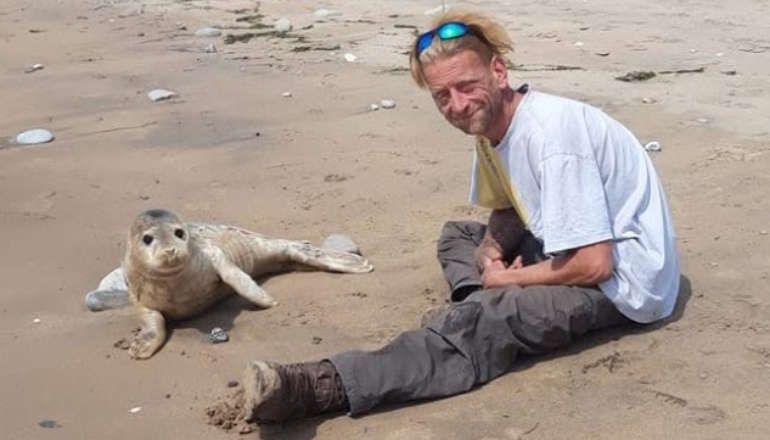 Family Pays Touching Tribute To Sandown Man Killed In New Year's Eve Collision
Family Pays Touching Tribute To Sandown Man Killed In New Year's Eve Collision
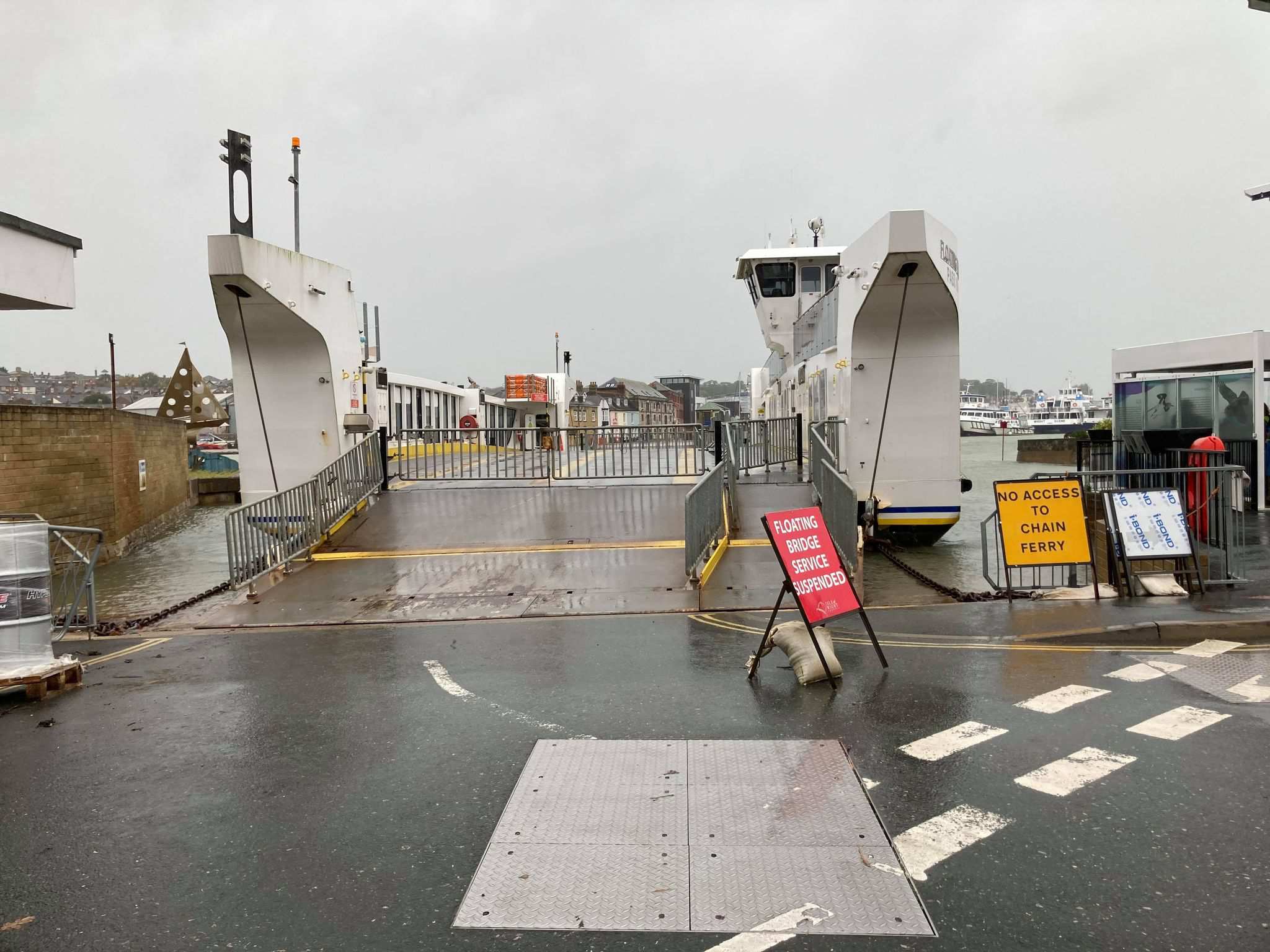 Floating Bridge To Remain Out Of Service Until Later This Week Due To 'Faulty Battery'
Floating Bridge To Remain Out Of Service Until Later This Week Due To 'Faulty Battery'
 New Date Announced For Rescheduled Sandown Fireworks
New Date Announced For Rescheduled Sandown Fireworks
 Council Chairman Honours Student's Artistic Achievement At St Thomas Of Canterbury Primary School
Council Chairman Honours Student's Artistic Achievement At St Thomas Of Canterbury Primary School
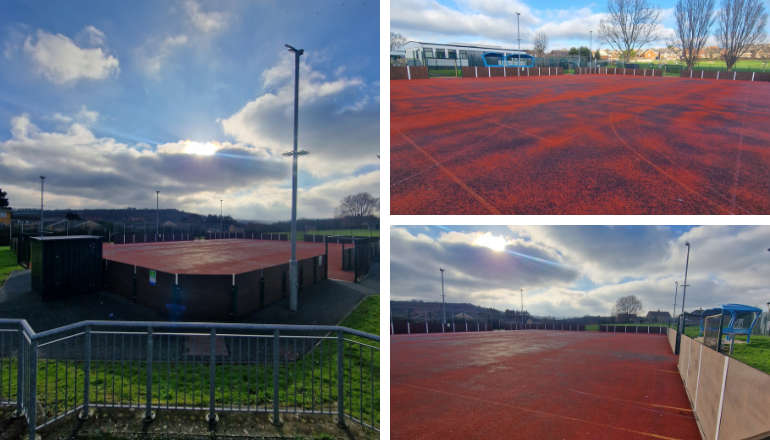 Pan Muga Set To Reopen For Newport Community
Pan Muga Set To Reopen For Newport Community
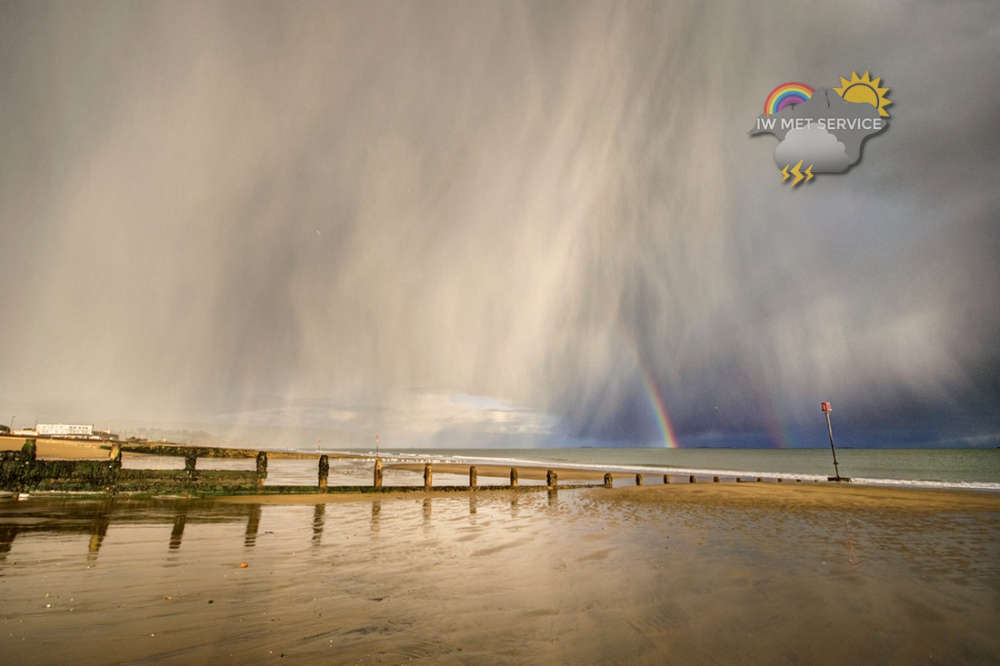 Squally Showers Today, Showery Rain Tomorrow - Strong Winds Throughout
Squally Showers Today, Showery Rain Tomorrow - Strong Winds Throughout
 Progress Made On New GP Surgery Plans To Support Island Residents
Progress Made On New GP Surgery Plans To Support Island Residents
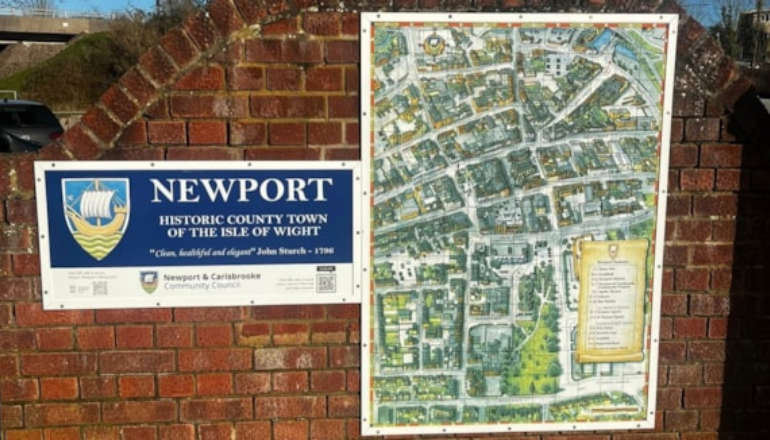 Heritage Action Zone Funding Sees New Town Maps Installed Around Newport
Heritage Action Zone Funding Sees New Town Maps Installed Around Newport
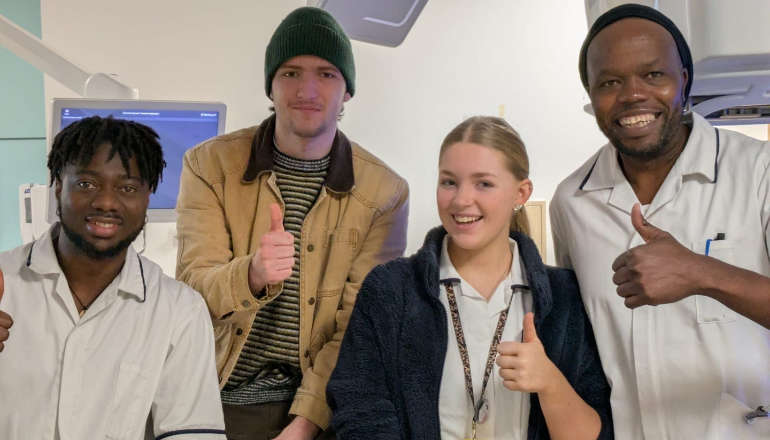 Isle Of Wight Schools Unite For Mufti Day To Support Local Teen Arlo
Isle Of Wight Schools Unite For Mufti Day To Support Local Teen Arlo
 Round The Island Race Entries Open
Round The Island Race Entries Open
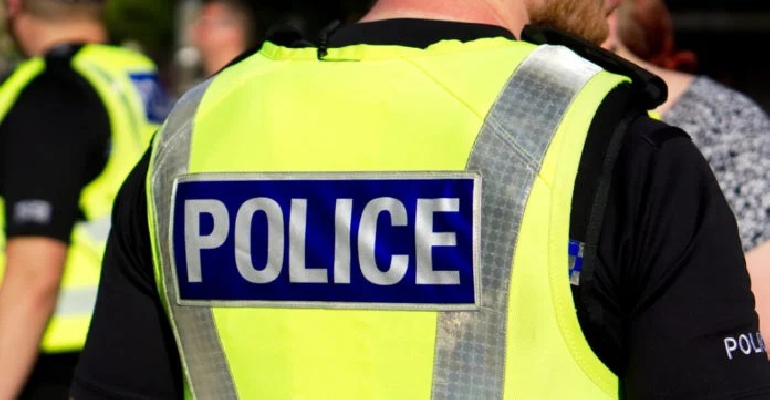 Investigation Underway After Sandown Pharmacy Break-In
Investigation Underway After Sandown Pharmacy Break-In
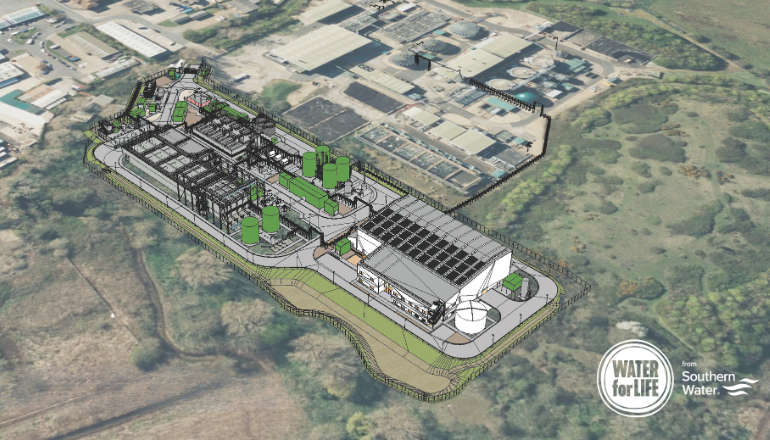 Island Views Sought On New Water Recycling Project
Island Views Sought On New Water Recycling Project
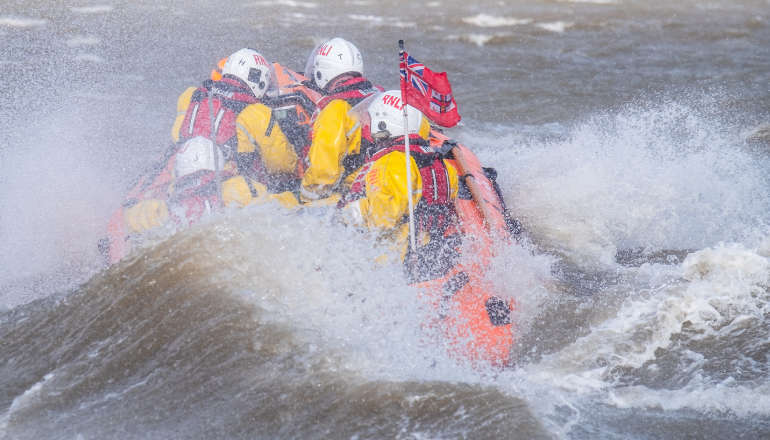 RNLI Urges Public To Stay Safe As Storm Éowyn Hits UK
RNLI Urges Public To Stay Safe As Storm Éowyn Hits UK
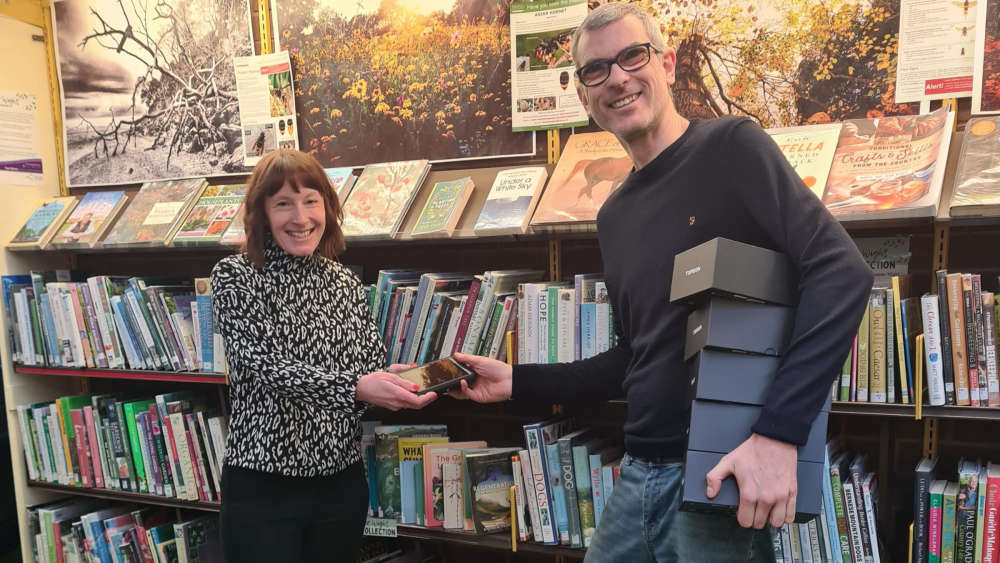 Borrow A Thermal Camera To Find Cold Spots In Your Home
Borrow A Thermal Camera To Find Cold Spots In Your Home
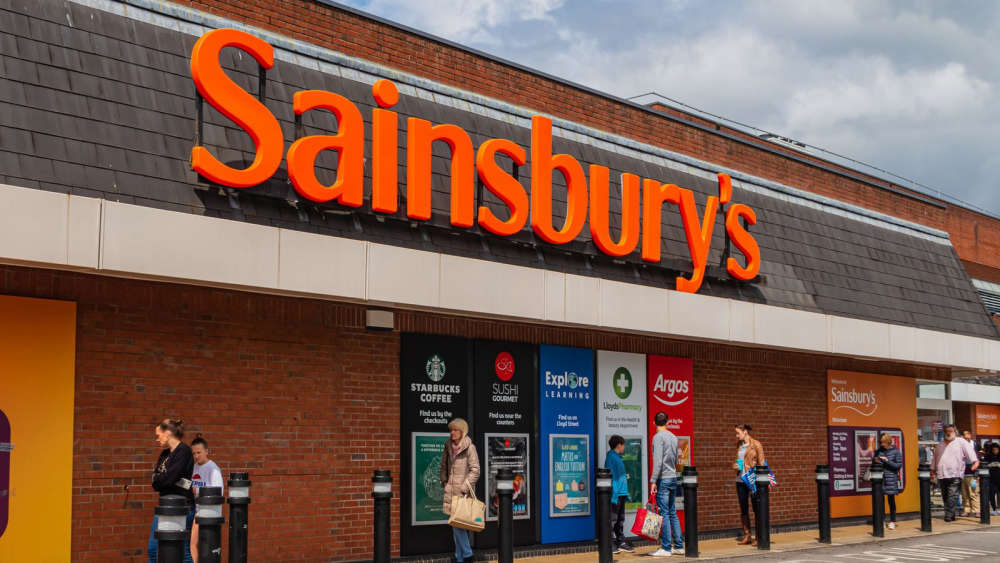 Newport Sainsbury's Café Set To Close As Part Of Supermarket Cuts
Newport Sainsbury's Café Set To Close As Part Of Supermarket Cuts
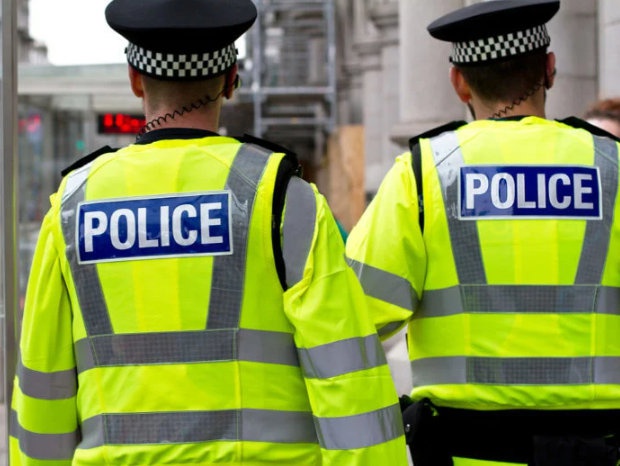 Three Men Charged In Connection With Sandown Hotel Burglary
Three Men Charged In Connection With Sandown Hotel Burglary
 Four Arrested And Two In Hospital Following Newport Burglary
Four Arrested And Two In Hospital Following Newport Burglary
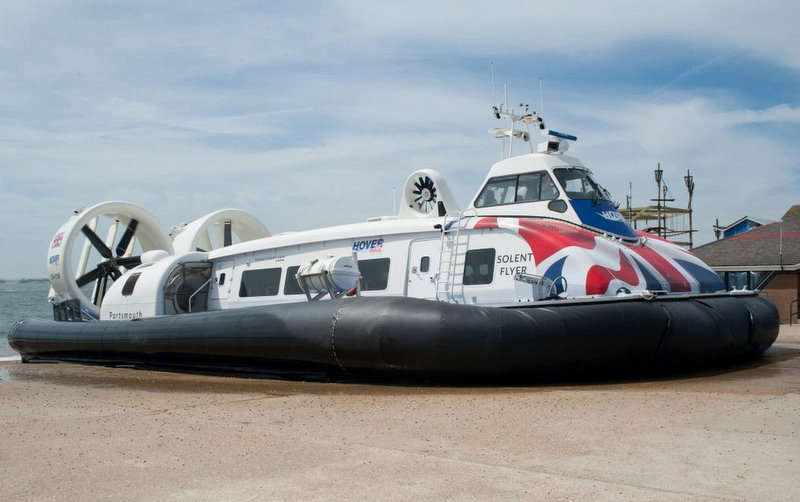 Hovertravel Set To Reduce Services Due To Financial Pressures
Hovertravel Set To Reduce Services Due To Financial Pressures
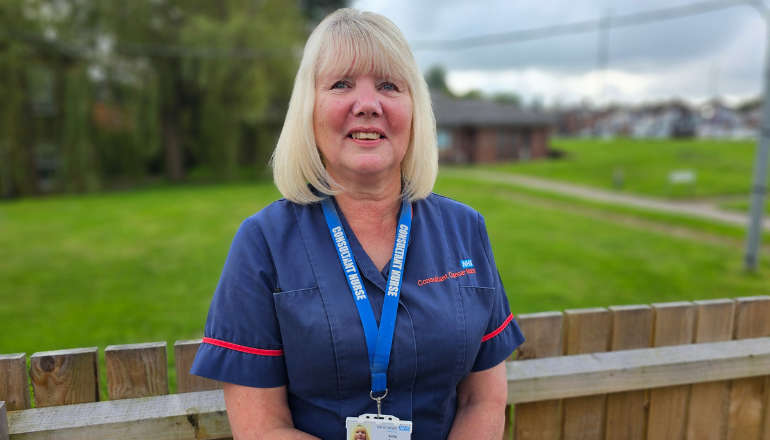 Islanders Invited To Share Experience Of Cancer Treatment
Islanders Invited To Share Experience Of Cancer Treatment


